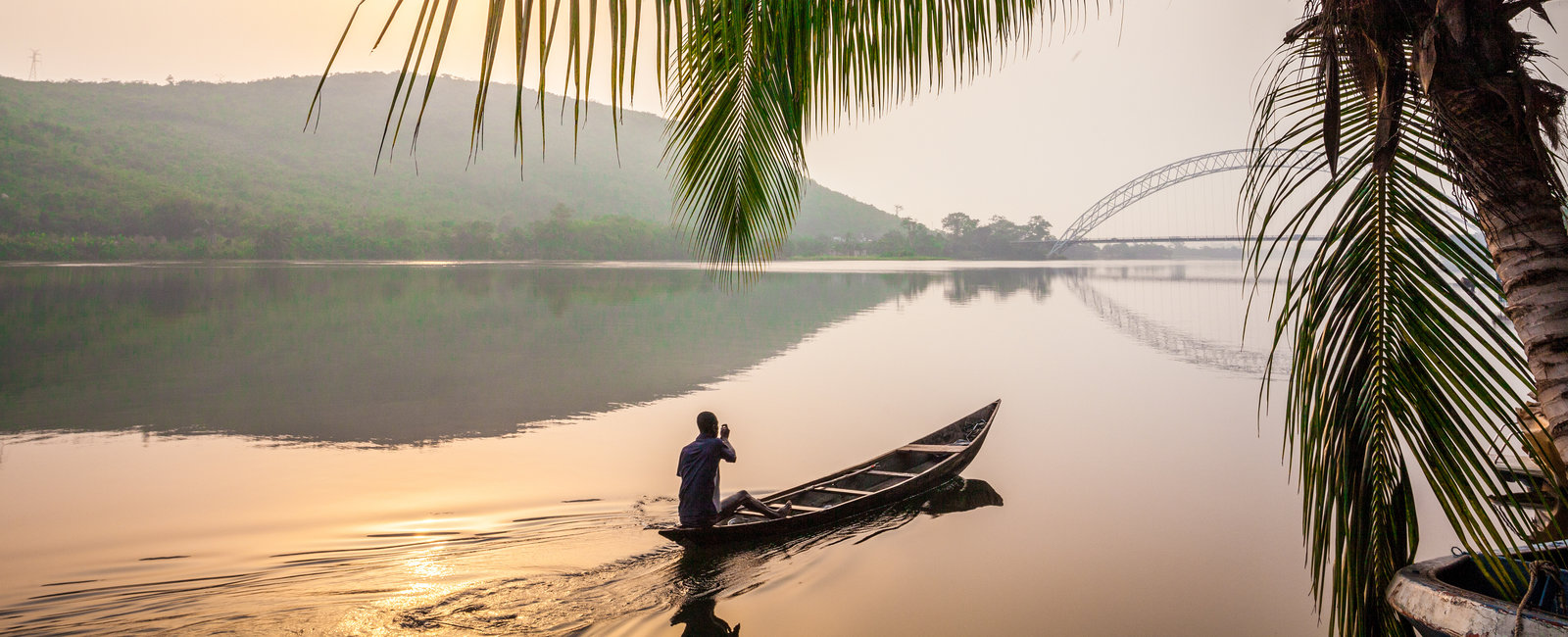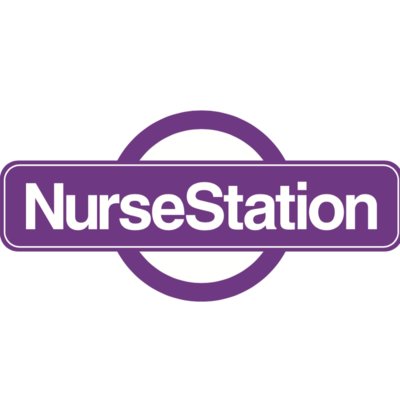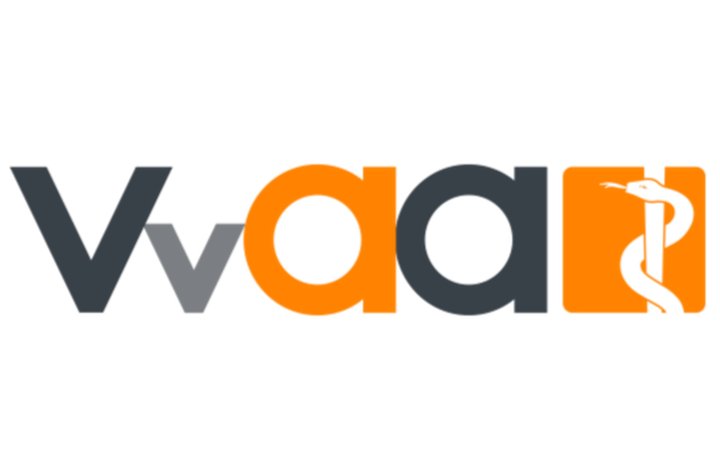Edge Hill University 2019
 As a nursing student, I have always enjoyed using placements as a way to build upon my knowledge and understanding of the theory we learn in university. Also, as a visual learner I find I learn more when I am doing practical tasks in a variety of different environments.
As a nursing student, I have always enjoyed using placements as a way to build upon my knowledge and understanding of the theory we learn in university. Also, as a visual learner I find I learn more when I am doing practical tasks in a variety of different environments.
I have always looked forward to the possibility of a placement abroad and in my second year I was given the opportunity to undertake a placement of my choice. I decided to go to Takoradi in Ghana for two weeks. Africa is a country I have always wanted to visit. I didn’t know anyone who had ever travelled to Africa before, but it’s somewhere I felt would benefit my future career as a nurse.
We were given a talk at university regarding overseas placements and I conducted further research by contacting Work the World via their webpage. From the start, Work the World supported me during every step of applying, planning and arranging my placement in Ghana.
After I registered I was given access to MyTrip which had a vast amount of information about my placement, with a timeline setting out important deadlines such as when to apply for my visa, immunisations and even a packing checklist. I had several phone calls with the team which provided reassurance and answers to my questions, ensuring that everything was going okay.
 When I began my journey to the airport I was so nervous, I had travelled alone before but I’d never reached my destination without knowing anyone. When I arrived at Accra airport I was welcomed by the Work the World team and met one of the girls I would be sharing a room with for the night before we travelled to Takoradi the following day. The next morning my roommate and I met the other arrivals prior to our journey to Takoradi, little did I know the impact these eleven girls would make to my whole experience.
When I began my journey to the airport I was so nervous, I had travelled alone before but I’d never reached my destination without knowing anyone. When I arrived at Accra airport I was welcomed by the Work the World team and met one of the girls I would be sharing a room with for the night before we travelled to Takoradi the following day. The next morning my roommate and I met the other arrivals prior to our journey to Takoradi, little did I know the impact these eleven girls would make to my whole experience.
We were all taken to the hospital the following day for a tour of our departments and to meet our supervisors and hospital staff. I don’t actually think I knew what to expect from the hospital in terms of differences, but the hospital in Ghana reminded me so much of hospitals from a long time ago, with limited research-based practice or resources. However, the staff on each department were so welcoming.
I chose to be based on the accident and emergency department for my two weeks in Ghana. The department was probably the busiest in the hospital, but I wouldn’t have thought so in comparison to A&E departments I’ve previously been placed in. The department was for all ages and covered a large population of Accra. Staff told me that some patients travel for several hours to attend the department in an emergency.
 The department had limited resources available and doctors had to make difficult decisions in regards to treatment options that were both appropriate and available. Due to limited resources, there was often a cost for treatment and relatives would have to pay for this before treatment was given.
The department had limited resources available and doctors had to make difficult decisions in regards to treatment options that were both appropriate and available. Due to limited resources, there was often a cost for treatment and relatives would have to pay for this before treatment was given.
One of the main differences between the UK and Ghana was the heavy reliance on relatives to administer basic health care and collect medications or test results. Also, Ghanaian students were heavily relied upon, learning cannulation and the administration of intravenous medications during their first year.
I spent my first week observing and triaging patients alongside one of the Fante (the language spoken in Takoradi) fluent students. I was amazed to see similarities in the way we triaged patients using a ‘TEWS’ chart. But following the TEWS score, staff in Ghana also use additional criteria called ‘determining factors’ that could increase a patient’s score. I found this a useful tool to indicate any other factors external to observations that may increase the need for a patient assessment/review.
I learnt a lot from my time placed alongside the Ghanaian students and shadowed them to learn the procedures within the department.
 There were often only two registered staff nurses during a shift which increased the dependence on Ghanian students as they would take charge, although most of the students were extremely confident, requiring minimal or no support/supervision. I learnt a lot from my time placed alongside the Ghanaian students and shadowed them to learn the procedures within the department. They were always keen to teach me their practice and would ask questions about my practice in the UK.
There were often only two registered staff nurses during a shift which increased the dependence on Ghanian students as they would take charge, although most of the students were extremely confident, requiring minimal or no support/supervision. I learnt a lot from my time placed alongside the Ghanaian students and shadowed them to learn the procedures within the department. They were always keen to teach me their practice and would ask questions about my practice in the UK.
Overall, despite the limited resources and difficult decisions both doctors and nurses had to make regarding the provision of care, the multi-disciplinary team took a very relaxed approach to practice. It is important to recognise there are some very big differences between our healthcare service and the healthcare in Ghana. Culture and religion have a massive impact on patients receiving treatment, their condition and how long it takes them to seek medical help.
Whilst based in the department I saw several cases where families didn’t believe in the medical service, viewing illness as a ‘curse’ or something that could be cured through herbal remedies. Most of the time herbal remedies would cause deterioration of a patient’s condition or symptoms, but this was due to a lack of education and understanding.
One of the cases I’ll never forget was a 7-year-old boy who had suffered burns several months before attending A&E. His family refused to bring him to the hospital to receive treatment and instead believed herbal treatments would cure the wound. When he arrived at A&E I just remember hearing the senior doctor shouting in Fante at the relatives of the little boy. His wound had spread from his hands all across his lower arm to just above his elbow. He had lost all feeling in his hand, being unable to move his fingers or even lift his arm without the support of his other. This boy was now at risk of losing his arm just above the elbow, which is something that could have been avoided if he came straight away to receive medical treatment. I never found out the outcome of his case but the nurses dressed his arm before more tests would occur. In the UK, this scenario would have been so serious, however, this was quite a normal case in Ghana as herbal treatments are used frequently as part of their religion and culture.
I met so many diverse and interesting individuals who made my stay in Ghana that much easier.
During my two week placement staying in ‘the big blue house’, I met so many diverse and interesting individuals who made my stay in Ghana that much easier. People travelled from all over the world to take part in an overseas placement and as someone who has never travelled alone before I found it beneficial to meet people in similar situations to myself and build relationships that I’ll cherish forever.
Weekends provided the opportunity to travel to some amazing places. I visited Cape Coast where I stayed in a treehouse in one of the national parks. It was crazy sleeping in the middle of a rainforest in a huge treehouse. I also visited Mole National Safari Park where the animals were so free.
 The Work the World team in Ghana were great and would always be on hand if you needed anything. On a Thursday they would organise a BBQ as a way for everyone in the house to socialise, unwind and learn some African dancing. It was definitely one of my favourite nights and the food was delicious.
The Work the World team in Ghana were great and would always be on hand if you needed anything. On a Thursday they would organise a BBQ as a way for everyone in the house to socialise, unwind and learn some African dancing. It was definitely one of my favourite nights and the food was delicious.
As a single mother I had never been apart from my 7-year-old son for longer than a few days, which was something I had to consider before organising my trip. I booked my trip for just before the summer holidays so that he was occupied in school and when I came home we would have several weeks to spend some time together. My son was just as excited as I was for me to go to Africa and was so excited to meet all my new friends on Facetime and see the ‘big blue house’ I was staying in. I have a strong support unit at home and this enabled me to organise my overseas placement for two weeks.
 Whilst staying in Africa there was a local school nearby to where we stayed, I would regularly visit this school and I think this interaction with the children helped keep me occupied from missing my own son. The children were so happy and welcoming, just like the rest of the community in Ghana, and it was rewarding to see them so grateful for my visit and gifts for them.
Whilst staying in Africa there was a local school nearby to where we stayed, I would regularly visit this school and I think this interaction with the children helped keep me occupied from missing my own son. The children were so happy and welcoming, just like the rest of the community in Ghana, and it was rewarding to see them so grateful for my visit and gifts for them.
I would highly recommend not only travelling abroad to experience a different healthcare service, but to consider Work the World. My experience was one I will never forget and I don’t think I could have organised my trip in as much depth without the constant support and lifeline they provide. My whole perspective of healthcare has changed and I don’t think you truly appreciate how lucky we are in the UK until you’ve seen it from a different perspective. I would recommend keeping your own diary to keep a record of each day as the whole experience goes so quickly!
Thank you so much Work the World for one of the most amazing experiences that I’ll never forget, it will absolutely influence the nurse I become.

.jpeg)



